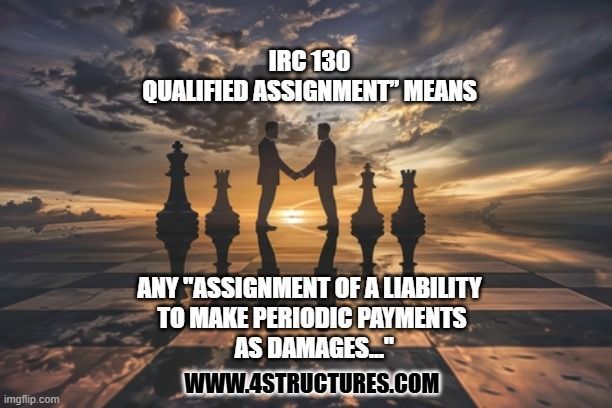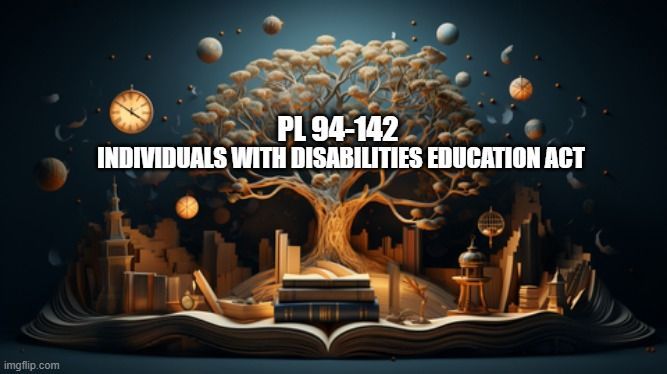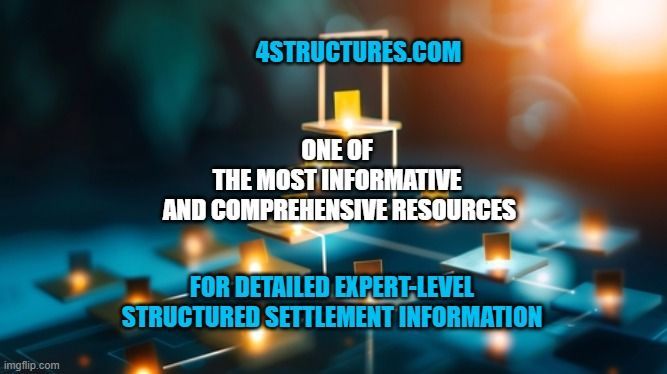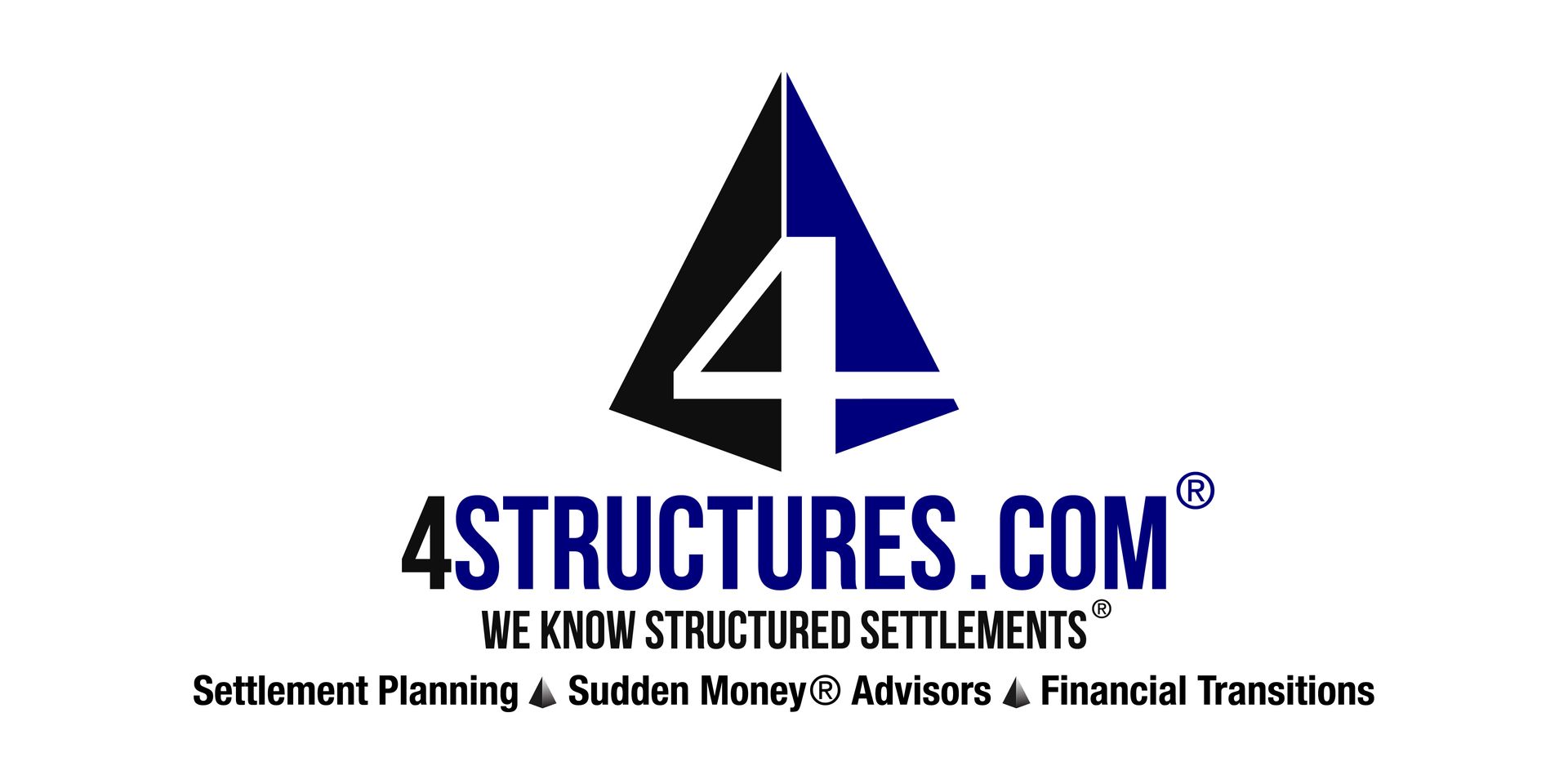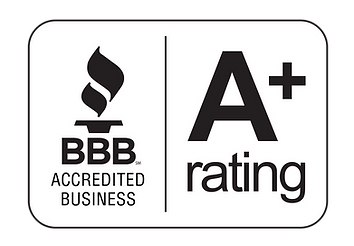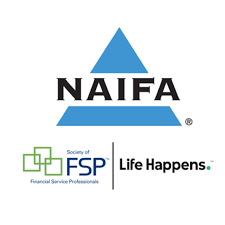QSF Management: Convenience vs Compliance?
"Pride Cometh Before the Tax Trap Fall"
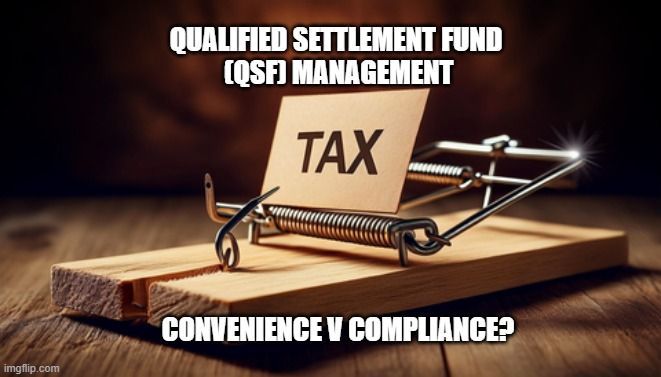
Talking Points: QSF Management - Convenience vs. Compliance
Qualified Settlement Funds are a tax-based statutory formation similar to § 401(k), § 125, or § 457 plans. All of these arrangements enjoy a “qualified” tax benefit in exchange for satisfying a mandatory set of qualifying requirements, including but not limited to ongoing operational compliance. In the event of noncompliance, the arrangements become “disqualified” at the moment of their offending violation. Thus, qualification is not a single moment in time, but rather a continuing obligation to operationalize all the requirements, as well as those required for creation.
The Allure of "Convenience" is a Tax Trap
· It's tempting for a law firm to treat a Qualified Settlement Fund (QSF) established under § 1.468B-1 like another firm bank account. This seemingly convenient approach provides maximum flexibility and unfettered control over disbursements.
· However, this "convenience" is a critical error. It directly disqualifies the fund's integrity and creates significant tax and ethical problems for both the client and the firm.
---
The Doctrines of Control: Constructive Receipt and Economic Benefit
· It is well established that a lawyer is the agent of their client. This agency relationship is fundamental.
· As held in landmark cases like Commissioner v. Banks, the agent's control over funds is legally imputed to the principal (the client).
· When a law firm has sole, unfettered control of QSF assets, the client is deemed to be in constructive receipt of those funds and may derive an economic benefit, triggering tax liabilities under the constructive receipt and economic benefit doctrines.
o Constructive Receipt Doctrine: Income is taxed when it is credited to your account or otherwise made available for you to draw upon, regardless of whether you've actually taken possession of it.
o Economic Benefit Doctrine: Income is taxed when an economic benefit has been irrevocably secured for you, even if you can't access it immediately.
· By maintaining direct control, the law firm effectively makes the settlement proceeds available to the claimant, triggering an immediate tax liability for the entire amount – thus rendering any associated structure invalid.
---
What the Specific Pitfall of Escrow-Based QSFs?
· Inherent Risk: Using an escrow agent instead of a true trustee for a QSF inherently runs the risk of triggering the economic benefit and constructive receipt doctrines.
· No True Fiduciary Discretion: An escrow agent's role by law is only ministerial—they merely follow the instructions of the parties. They do not
possess the independent, third-party fiduciary power to exercise discretion and reject a distribution request. This lack of independent control means the funds are effectively still under the control of the claimant's agent (the lawyer).
Note: A bank without trust powers cannot exercise trust powers or discretion.
· Improper Delegation of Authority: In many cases, the governmental entity (like a town) that approves the QSF does not itself possess the power to manage and make discretionary decisions about fund distributions. Therefore, any attempt by that entity to grant such authority to an escrow agent is an improper delegation of power. Under state and federal law, such a grant is void ab initio (void from the beginning).
---
Formalities Are Not Optional; They Are Required
· A QSF is a specific, tax-qualified arrangement, much like a 401(k) or an IRA. You wouldn't manage a 401(k) plan out of a simple escrow account (it would be disqualified), and a QSF is no different.
· These tax arrangements work precisely because they follow strict statutory and regulatory formalities. For a QSF, this includes continuing oversight by a court or government agency and management by a trustee or administrator who has genuine fiduciary powers and is independent of the claimants and their attorneys.
· This formal structure is what prevents constructive receipt and economic benefit, and protects the client's ability to engage in tax-deferred planning. Compliance ensures the integrity of the fund.
---
The Real Risks of Prioritizing Convenience
Choosing an easy but improper administration method, like an escrow, exposes law firms to severe consequences:
1. Violation of Tax Law: Directly causing a client to run afoul of the constructive receipt and economic benefit doctrines is a serious tax compliance failure.
2. Violation of Professional Conduct: The rules of professional conduct demand that a lawyer act in the client's best interest.
o Triggering a client's immediate and full tax liability for the sake of administrative convenience is a clear breach of this fiduciary duty.
o It places the firm's interest (convenience) ahead of the client's interest (proper tax planning and financial well-being).
3. Legal Malpractice Claims: When clients receive an unexpected and premature tax bill from the IRS due to the firm's improper fund management, they have a strong basis for a malpractice lawsuit.
The bottom line is simple: Proper QSF administration requires an independent, third-party trustee with genuine fiduciary powers. This is not an optional add-on; it is a fundamental requirement to protect the best interest of a client, uphold ethical duties, and comply with federal and state tax law.
Read other blogs on QSF Administration
Qualified Settlement Fund Not So Best Practices | Pay Attention! September 3, 2025

